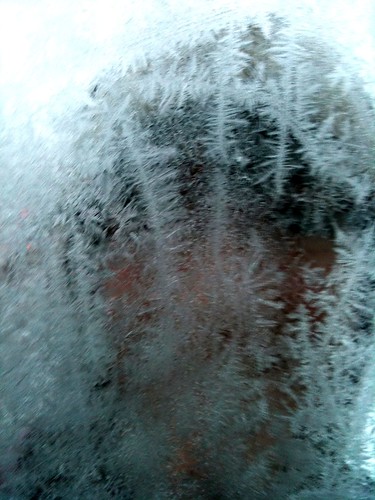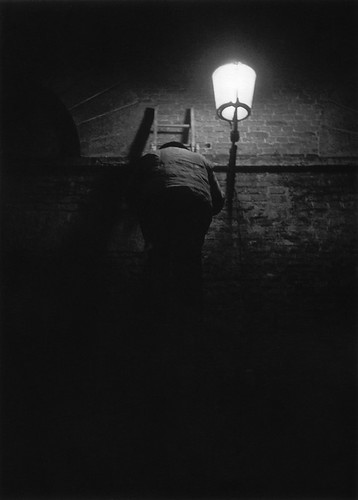by Jake Walters

The frosted glass made my face a ghost’s, floating between worlds, eyes too wide. What I saw: a goddess in her ripening middle-age, full of love for me, her fingers laced together with an unfamiliar man’s. Seeing her smile, through the cold, a smile hesitant and fleeting. Like she was a free woman, her first day out of jail. If she glanced toward the window, I would step back a foot and disappear. Not completely, but the way a story does when the book is closed.
She never looked. Still I drifted backward, until the darkness swallowed me. Funny how it swallowed me, like sleep at an inappropriate time. You always awaken from such dozing embarrassed, not refreshed. I was embarrassed for her, for the man sitting across from her, for me. And for Dad, drinking his third or fourth Michelob already this evening, wondering where She was. Wondering when I would wander back from working on my Chemistry project at a pretend friend’s house.
As I walked home I tried not to imagine the next time I will be called upon to kiss her: at a bedtime, upon leaving for college, or perhaps only at her funeral. Tried not to imagine the labyrinthine nightmare memories that would conjure.
 Jake Walters has been published in several journals. He teaches English in Transylvania.
Jake Walters has been published in several journals. He teaches English in Transylvania.






 Vajra Chandrasekera is from Colombo, Sri Lanka. If you liked this, you should also try his stories in
Vajra Chandrasekera is from Colombo, Sri Lanka. If you liked this, you should also try his stories in 
 Jinapher J. Hoffman is the Founder and Writer for
Jinapher J. Hoffman is the Founder and Writer for 



 Natalia Theodoridou is a UK-based media & cultural studies scholar and a writer of strange stories. Her fiction has appeared in KROnline, Clarkesworld, Interfictions, Litro, and elsewhere. Her website is
Natalia Theodoridou is a UK-based media & cultural studies scholar and a writer of strange stories. Her fiction has appeared in KROnline, Clarkesworld, Interfictions, Litro, and elsewhere. Her website is